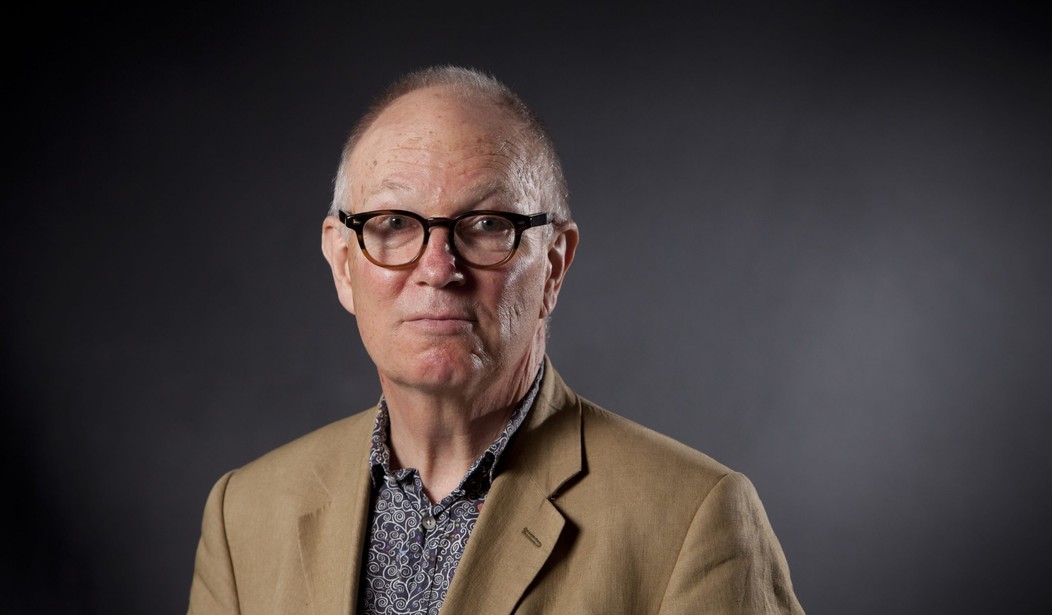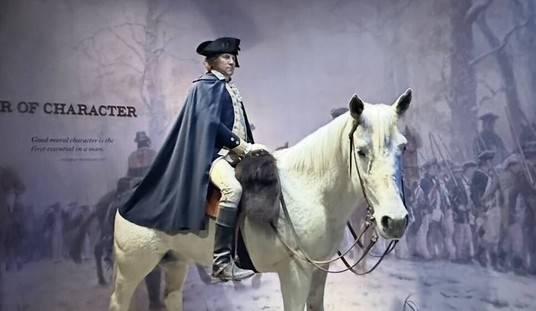Over forty years ago, in The Painted Word, Tom Wolfe aptly described the Sunday edition of the New York Times as “that great public bath, that vat, that spa, that regional physiotherapy tank, that White Sulphur Springs, that Marienbad, that Ganges, that River Jordan for a million souls” — an object into which one submerges oneself, “weightless, suspended in the tepid depths of the thing.”
Which is an elaborate way of saying that the Gray Lady, while occasionally, perhaps, running an op-ed that questions its editors’ own opinions, strives not to mount a serious challenge to the worldview that keeps its reader base content in its ideological bubble.
So it is that as the Dutch elections approached (they’re happening today), one thing was for sure: eventually the Times would run a long piece by Ian Buruma.
You see, when it comes to any given topic, the Times has figured out exactly who will deliver just the right goods — who will serve up a picture that neatly jibes with the one that the Times, in its editorials and its delicately slanted news stories, has repeatedly fed to its devoted (not to say devout) audience. As I noted in my 2009 book Surrender, the years 2005-6 saw the publication of several important works about the Islamization of Europe — among them Claire Berlinski’s Menace in Europe, Melanie Phillips’ Londonistan, Mark Steyn’s America Alone, and my own While Europe Slept — but the Times, whose reviews are a key factor in spreading the word about new books, didn’t deign to review any of them.
Yet when Ian Buruma’s Murder in Amsterdam came along in September 2006, the Times commissioned reviews for both its daily and Sunday editions. The reviewers themselves were honorably dubious about his take on the Dutch situation. But the Times immediately began inviting him to contribute pieces on the topic.
Why? Because in Murder in Amsterdam, Buruma — a former critic of Islam — had changed his tune. Dramatically.
The book (which I reviewed here) was about the 2004 slaughter of Muslim critic Theo van Gogh and the background thereto. In it, Buruma (a Dutchman and a longtime professor at Bard College in New York) wrote about van Gogh, about van Gogh’s courageous predecessor Pim Fortuyn (who’d been assassinated in 2002), and about van Gogh’s equally brave collaborator Ayaan Hirsi Ali in such a way as to darken their reputations.
At the same time, he sought, in his accounts of interviews with jihad-supporting Dutch Muslims, to dance smoothly around their actual horrifying beliefs and objectives and to make them come off as reasonable social critics. Masterfully, Buruma strove to avoid such ticklish topics as honor killing, female genital mutilation, forced marriage, and the jihadist determination to destroy individual freedom, banish women’s equality, and execute gays, apostates, and rape victims.
Buruma’s argument was that Dutch society should seek an “accommodation with the Muslims” that, among other things, would involve turning a blind eye to Muslim men’s “discrimination” against Muslim women. (Never mind that that “discrimination” routinely involves physical abuse, sometimes up to the point of murder.)
The Times loved every bit of it. And ever since, Buruma has been the Times‘ go-to guy on the Netherlands.
So it was that on March 10, the Sunday prior to the Dutch elections, the Times ran a piece by Buruma. His argument:
Populism is sweeping across the Western world. Populists of the right like Marine Le Pen in France and Geert Wilders in the Netherlands are different in some ways, but they have a few important things in common: They despise the European Union and see Muslim immigrants and refugees as an existential threat to national identities — or what some now grandly choose to call “Judeo-Christian civilization.”
Sorry, but Judeo-Christian civilization is grand. Though obviously not to Buruma.
And he certainly doesn’t consider Wilders grand, or anything like it. No, he calls him “zany.” He speaks of Wilders’ “agitated opinions on immigrants, Islam and the European Union.” Well, some of us think it’s about time that more European politicians got “agitated” about these topics. Buruma even manages to sneer at Wilders’ “bizarre dyed hair and crass speeches and tweets.” (Remind you of anything?) He depicts Wilders as a cynical pol who “uses gay rights and gender equality as sticks to beat Muslims by characterizing them as less tolerant.”
Note the slick, disgusting rhetoric there: Wilders — who, as far as we know, has never physically beaten any Muslim — is described as beating people who themselves have been taught that they have the right not just to beat their wives and daughters but to rape uncovered females; the right not just to beat gays and Jews but to put them to death in the name of Allah. And his support for gay rights and women’s equality is presented, on no evidence whatsoever, as patently cynical.
Buruma then brings in Fortuyn, whom he describes condescendingly (and with an attitude toward gays that would please any devout Muslim) as an “[o]utrageously amusing” fellow, a “dandy,” who, “once … a man of the left,” magically metamorphosed into someone who, incomprehensibly, depicted Muslims as “a threat to liberal Western values.”
No, Fortuyn never changed: his lifelong loyalty to classical liberal values, and his recognition of the plain fact that Islam called for the execution of people like him, compelled him to become a critic of Islam. It’s Buruma who changed — slickly exchanging his liberal principles for calculating, careerist accommodation. (To read Buruma is to be reminded constantly of Michel Houellebecq’s 2015 novel Submission, which paints a credible, terrifying picture of a France of the near future in which the members of the cultural elite — and specifically the protagonist, a professor at the Sorbonne — gradually and quietly submit to their new Islamic masters.)
Here’s Buruma on Wilders’ supporters:
People who feel abandoned and bewildered by globalization, new technology, secularism, immigration, refugee crises, economic stagnation and Islamist violence are susceptible to dreams of going back to some never-never land in the past when harmony reigned and all felt at home with their own kind.
Nonsense. Wilders’s supporters aren’t fantasists; they’re hard-core realists, facing up to the very real menace that Islam and the EU represent to their freedom. They’re people who are determined to claim their country as their own and to vote in their own interests, no matter what Brussels and the imams and the Burumas of the world think of them. “Mr. Wilders, as well as more mainstream politicians who are afraid of losing votes to the far right,” writes Buruma, “like to talk about ‘Dutch values,’ but it is hard to know what they are. Gay rights and gender equality are hardly traditional national values.”
On the contrary (and I’m sure Buruma is damn well aware of this), the Netherlands was in fact a pioneer in gender equality, going as far back (at least) as its Golden Age; and, no, gay rights isn’t a concept that goes back hundreds of years, but its modern flourishing in the Netherlands, before almost everywhere else, is rooted in the Dutch heritage of tolerance that has been almost invariably admirable — right up until the moment, of course, when Dutch leaders, bolstered by the reprehensible likes of Ian Buruma, decided that it was a good idea to tolerate intolerance.









Join the conversation as a VIP Member